Posts Tagged ‘crime prevention through social development’
Posted on: April 5th, 2017 by Waterloo Region Crime Prevention Council
On March 30th and 31st 2017, the Waterloo Region Crime Prevention Council hosted the 2017 Canadian Municipal Network on Crime Prevention (CMNCP) at the Walper Hotel. During this two-day event, members of the network, representing 24 different municipalities across the nation, attended interactive lectures led by leaders in public engagement, mental health, and community development. They participated in round table discussions pertaining to increasing both the capacity for crime prevention as a whole and the CMNCP capacity.
Attendees also had the chance to network with other members regarding their experiences with crime prevention in their own municipalities. It was a pleasure to host this hardworking group here in Waterloo Region. We look forward to the continued work ahead!

The attending CMNCP members at the reception hosted by Waterloo Region Chair, Ken Seiling. -Waterloo Region Museum.
A few additional photos of the event proceedings
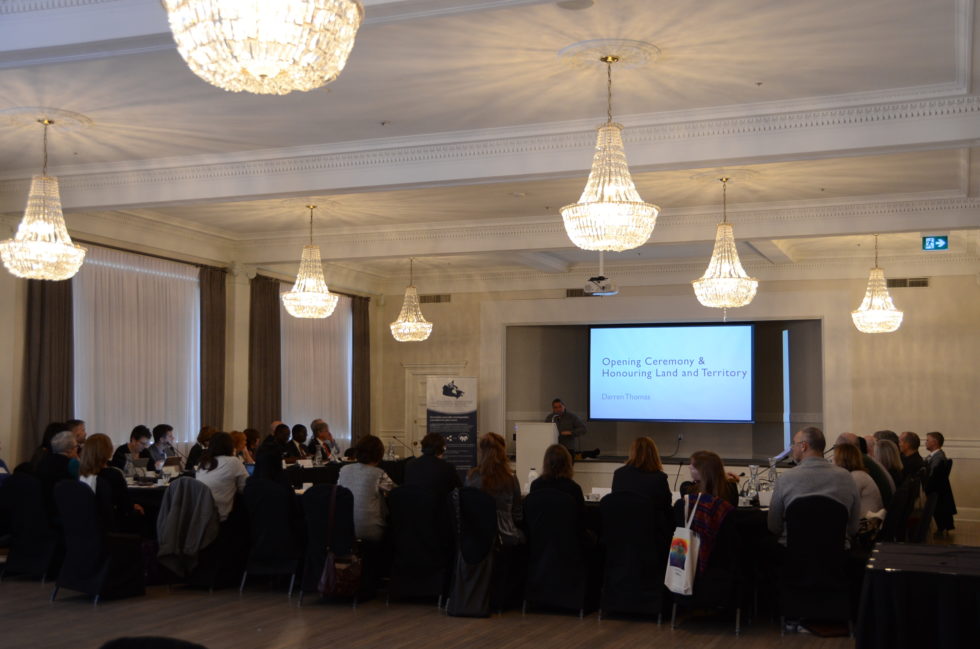
The CMNCP National Meeting was kicked off with an Indigenous Welcome & land Acknowledgement by Darren Thomas
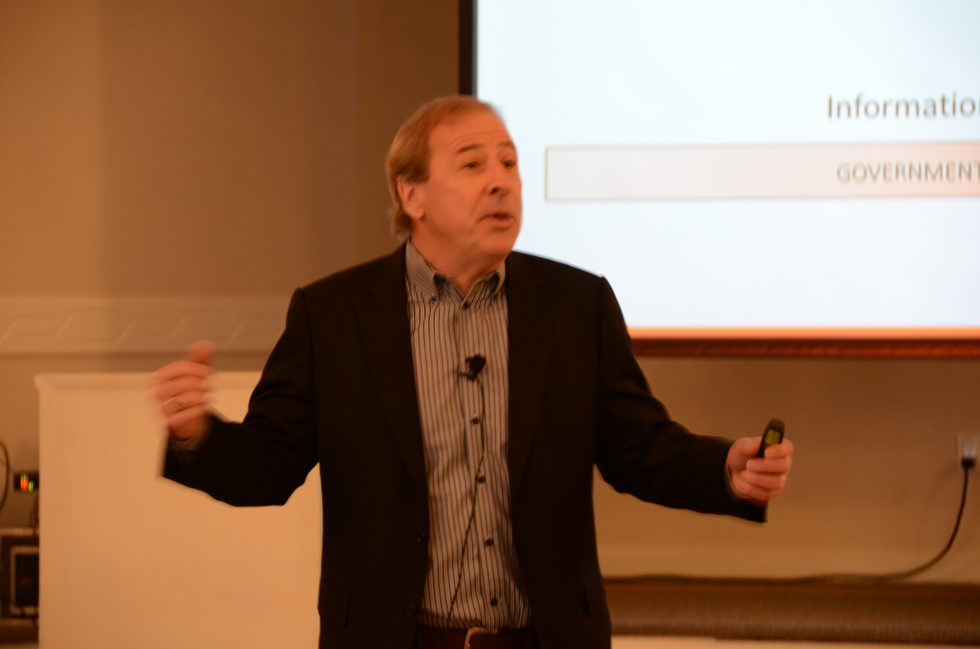
Presentation & Dialogue with Don Lenihan on Public Engagement with Government & Community

Professor Irvin Waller from the University of Ottawa speaking during the CMNCP national meeting
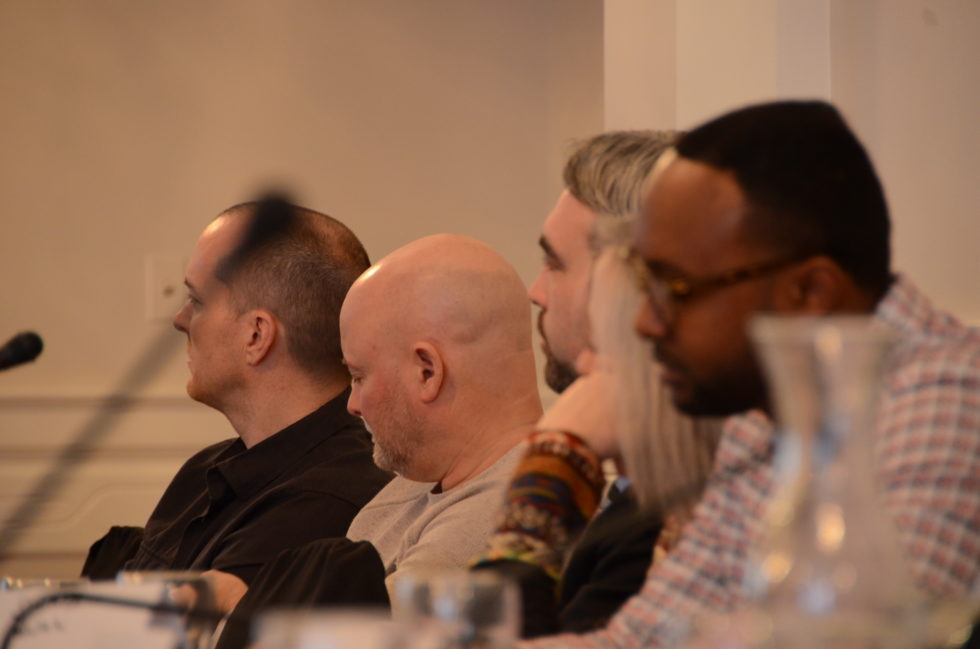
Members of the CMNCP listening intently to a presentation.
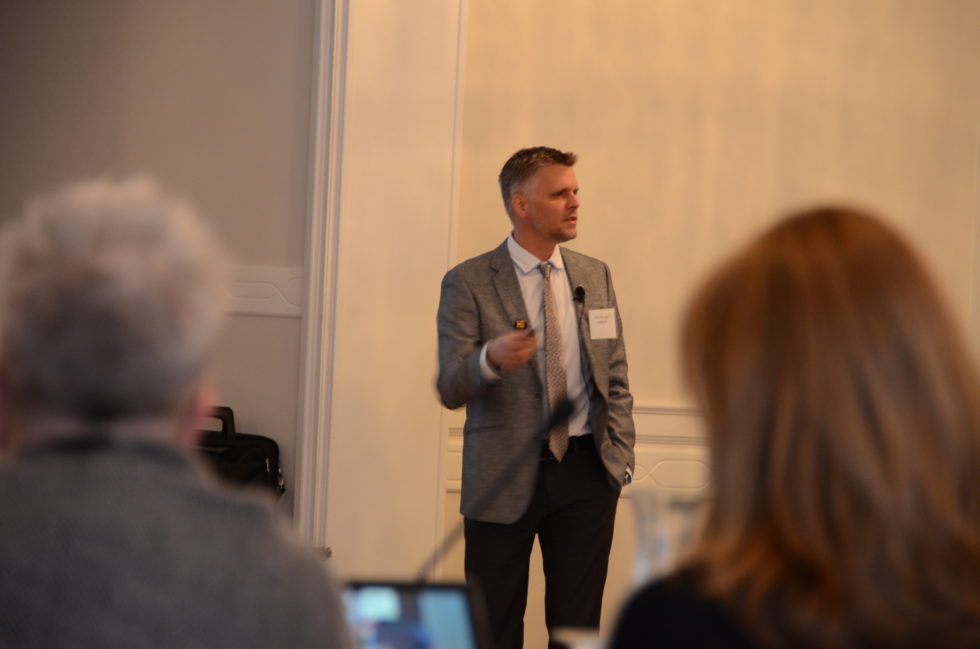
Felix Munger had the distinguished task of keeping the CMNCP proceedings on schedule!
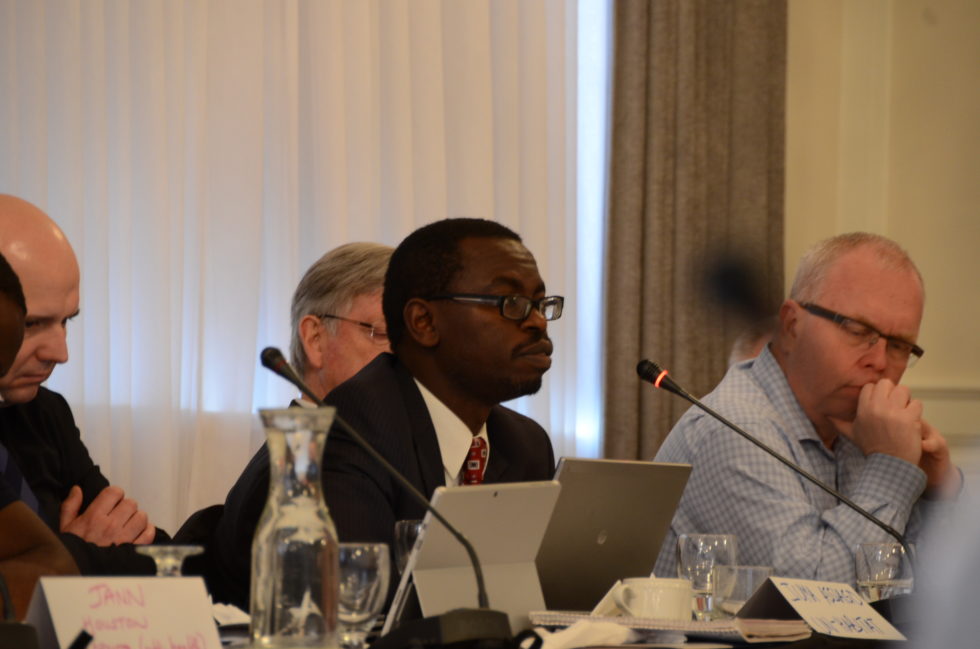
We were very pleased to host Juma Assiago from the UN- Habitat program at CMNCP. Juma supports international cities wanting to address complex crime issues through ‘safe city’ initiatives.
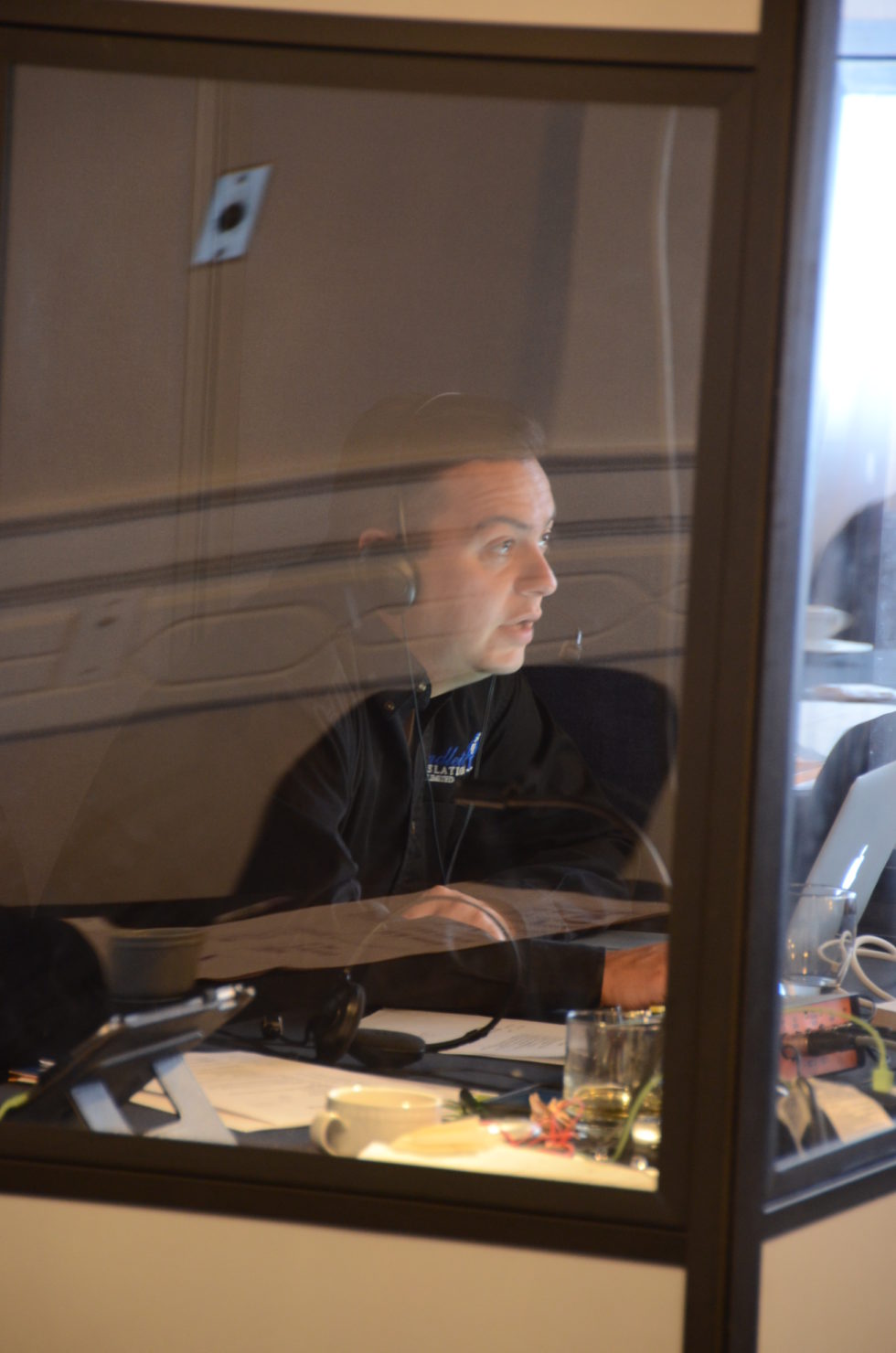
As this was a national meeting, all proceedings were delivered via simultaneous translation
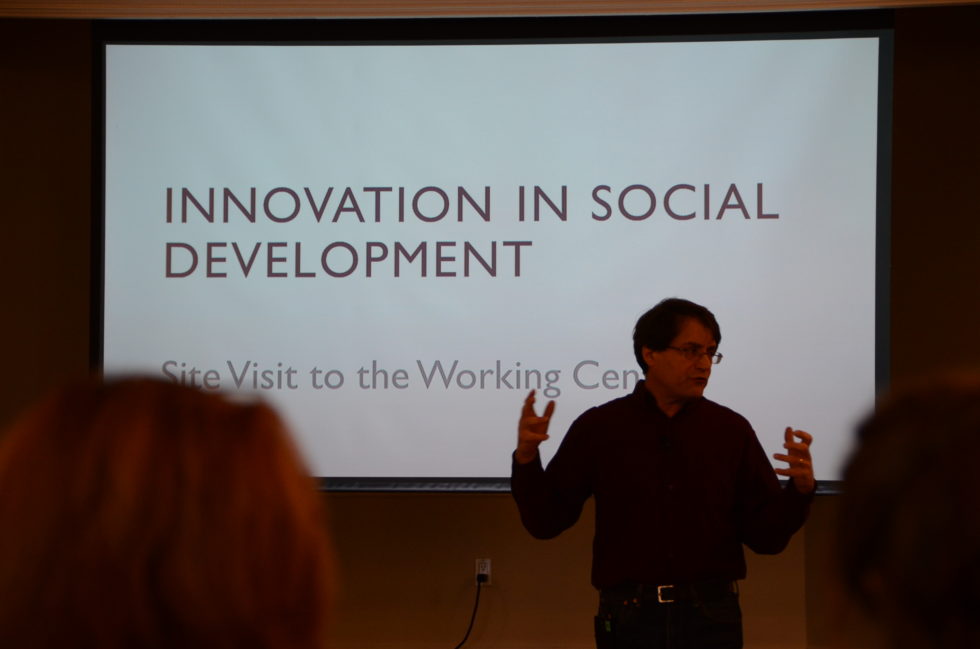
Joe Mencini from the Working Centre explaining the ins-and-outs of the community agency
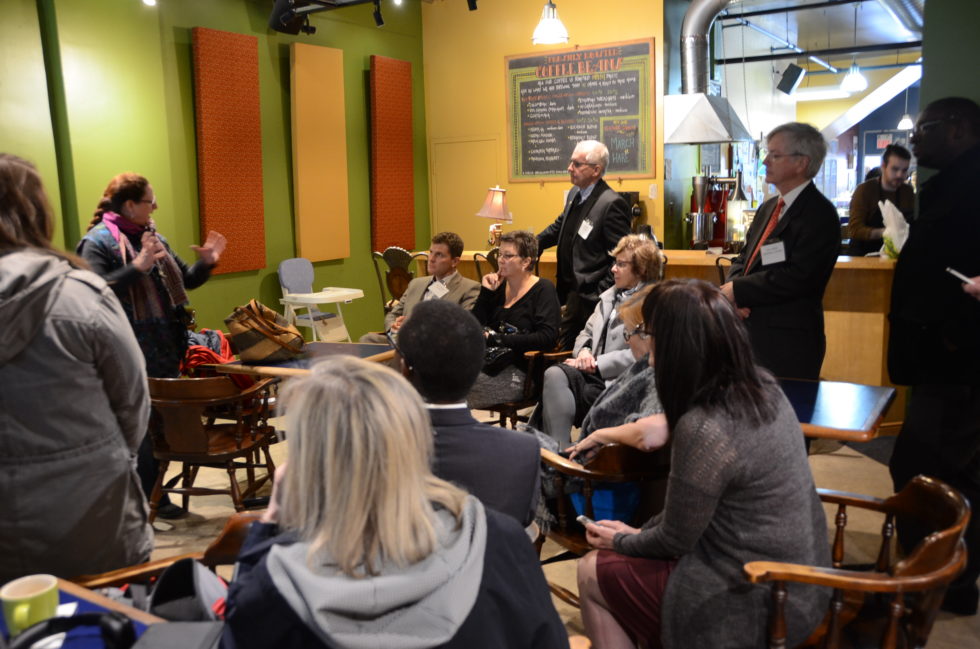
The group gets to leave the meeting table for a field trip to The Working Centre
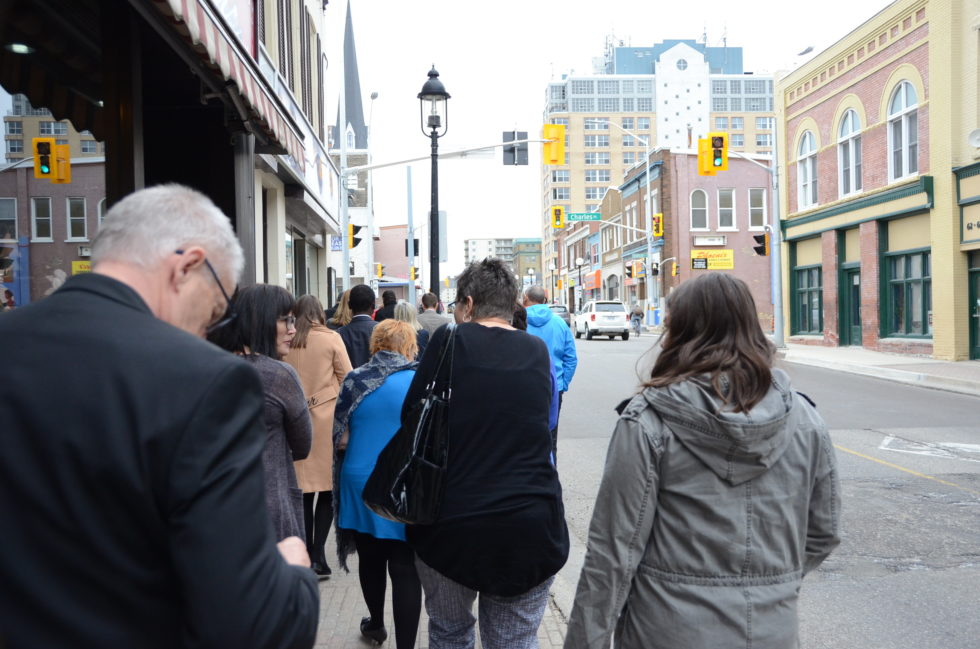
The group gets to leave the meeting table for a field trip to The Working Centre
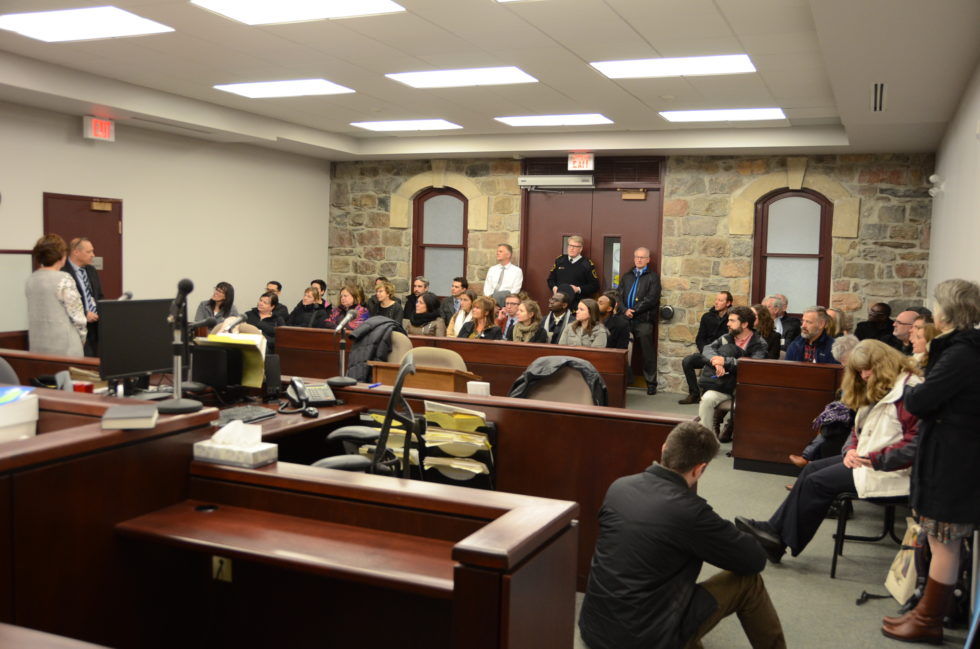
Members of the CMNCP make a visit to the WRCPC office & historic goal in downtown Kitchener

Chief Bryan Larkin of the Waterloo Region Police Services speaking at the Gaol

Regional Chair Ken Seiling was the host for the CMNCP reception held at the Waterloo

CMNCP Co-Chair Patrice Allard speaking at the reception.
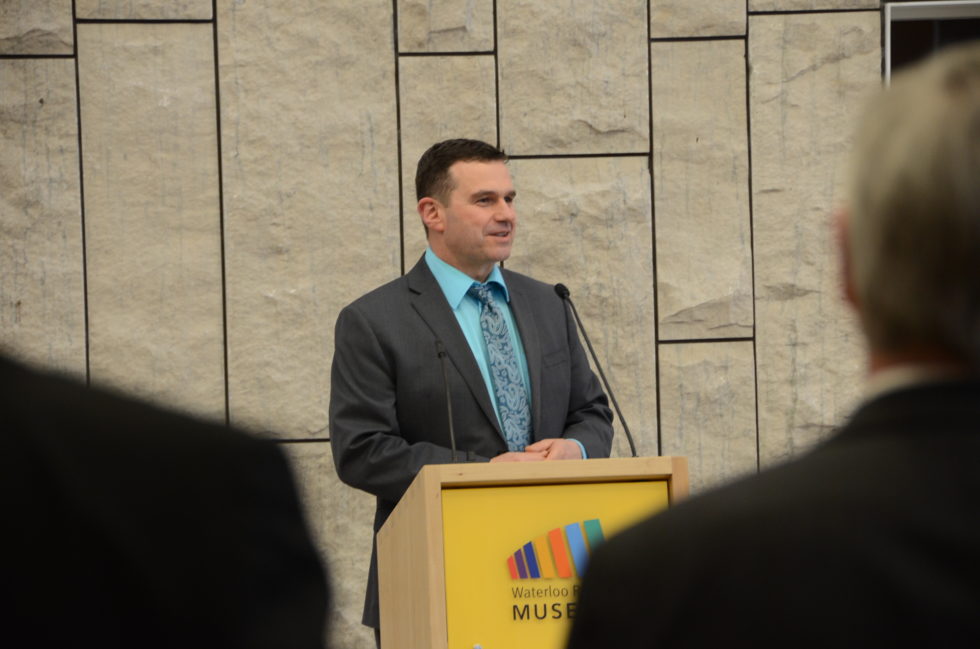
Deputy Chief Kevin Thaler of the Waterloo Region Police Services giving a speech at the reception
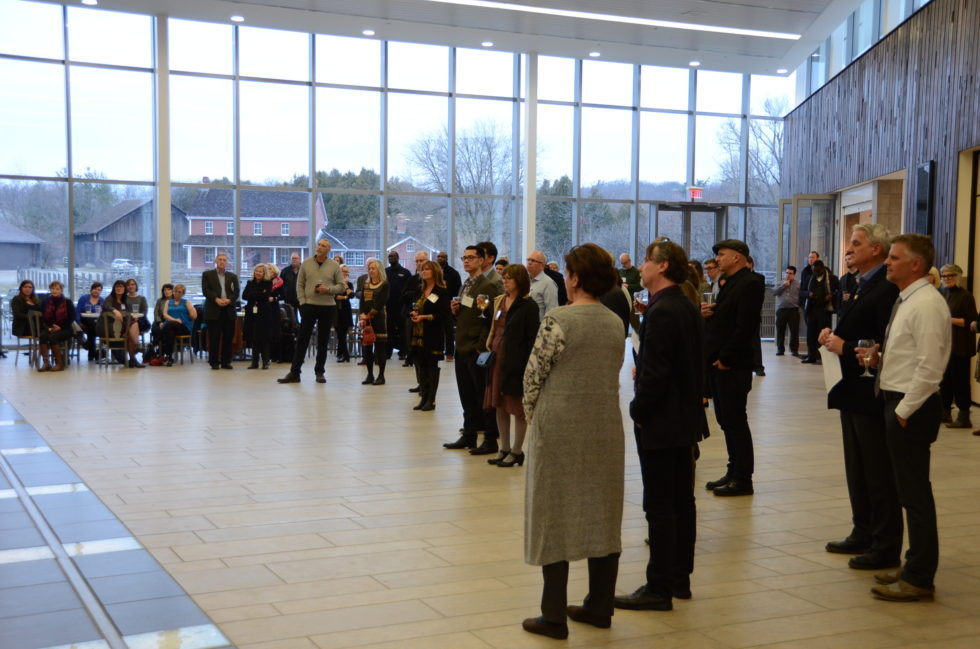
CMNCP members gather around the podium at the Waterloo Region Museum for a welcome address.
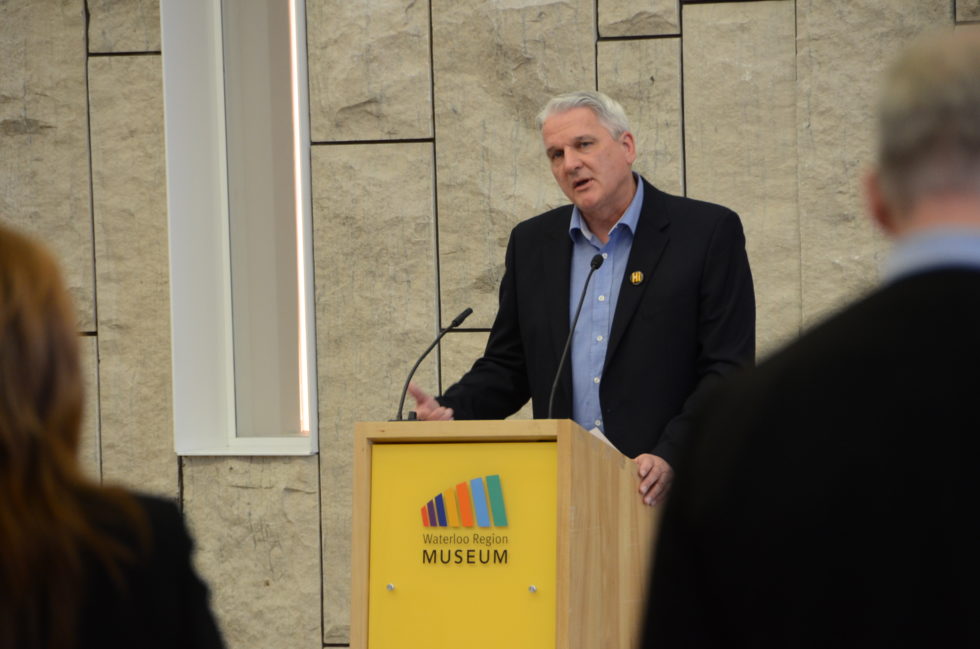
WRCPC Chair Shayne Turner speaking to the guests at the reception
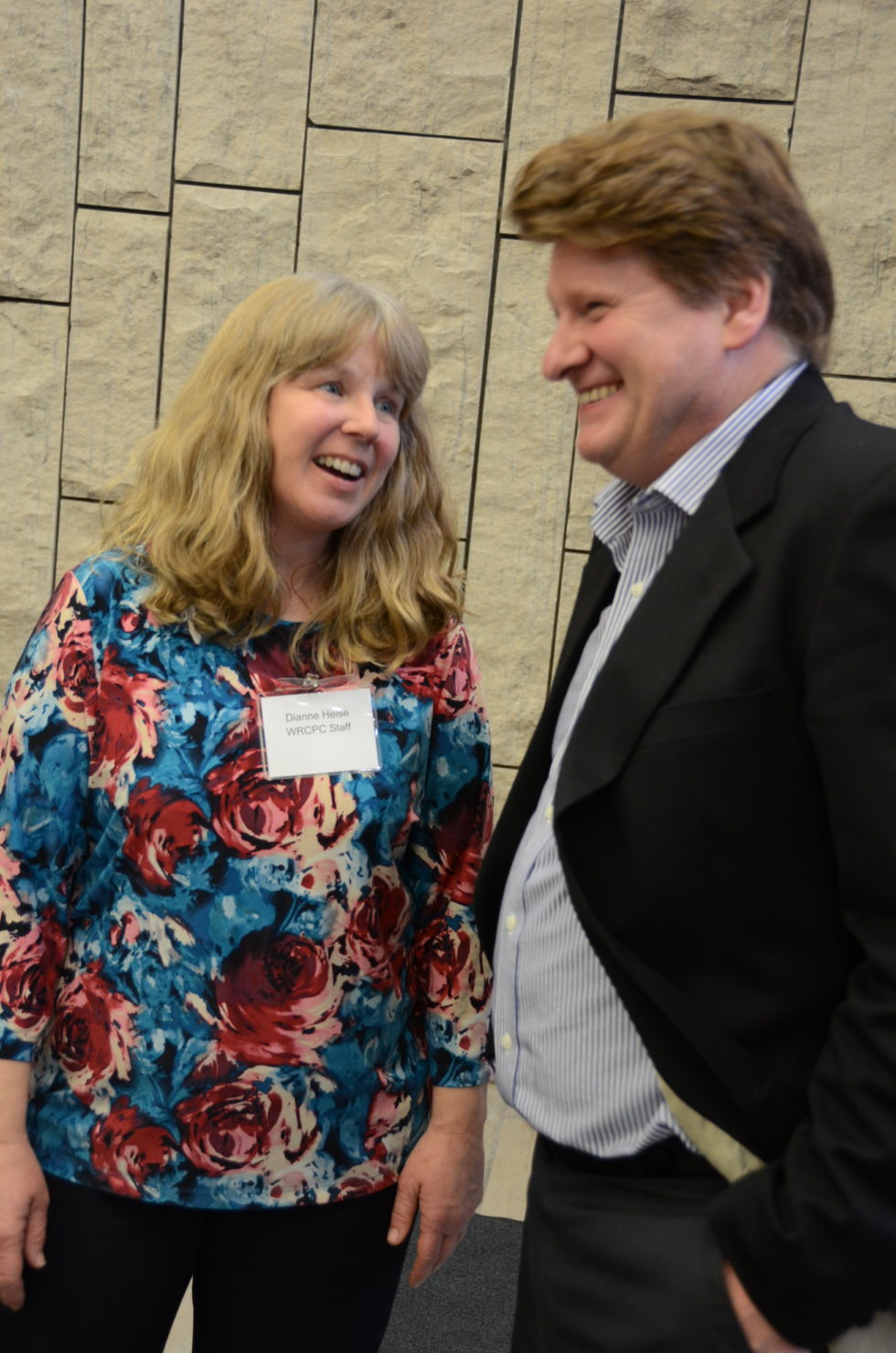
Dianne Hiese & Chris Cowie catching up at the reception
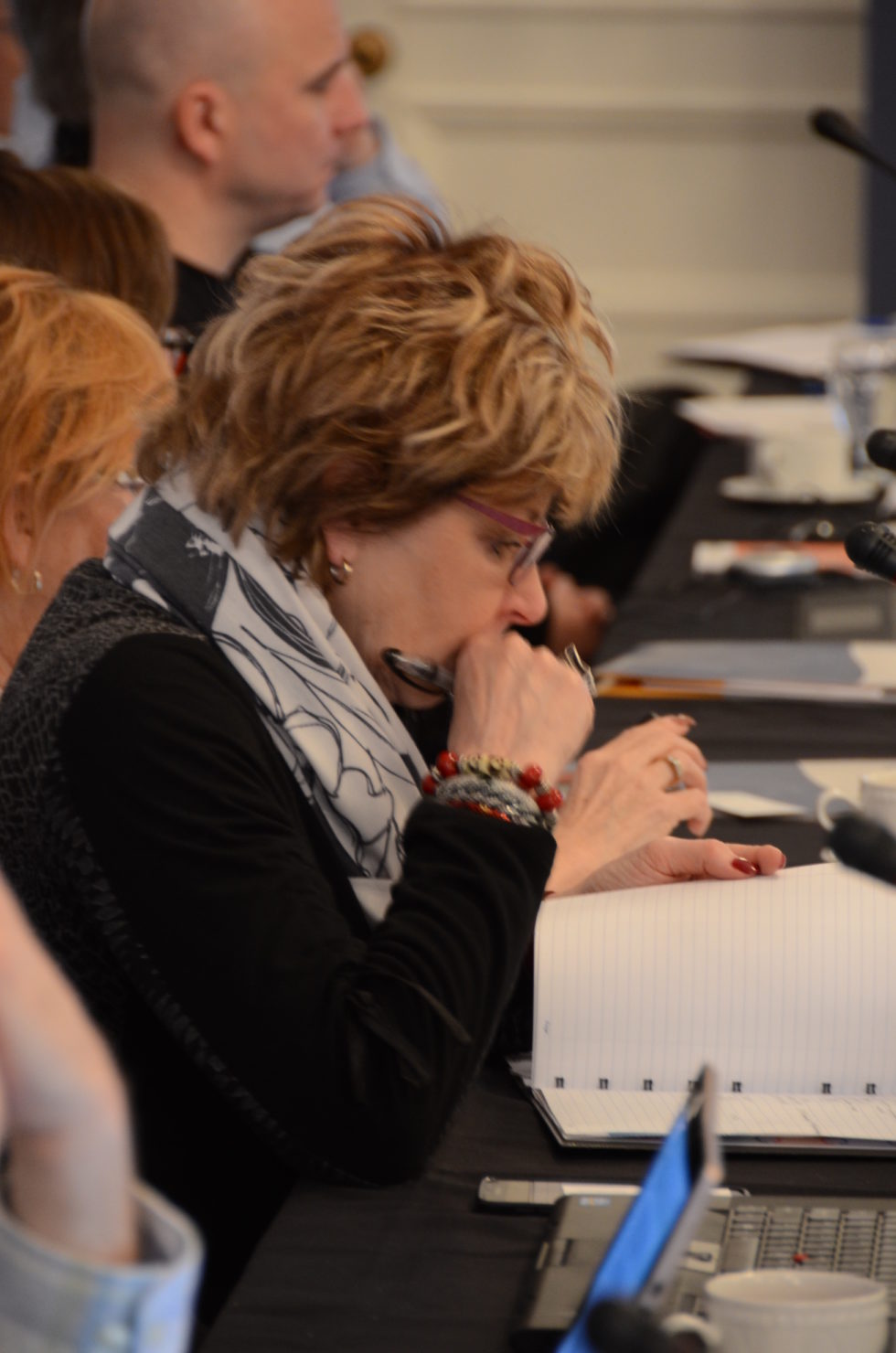
Hard at work during meeting sessions
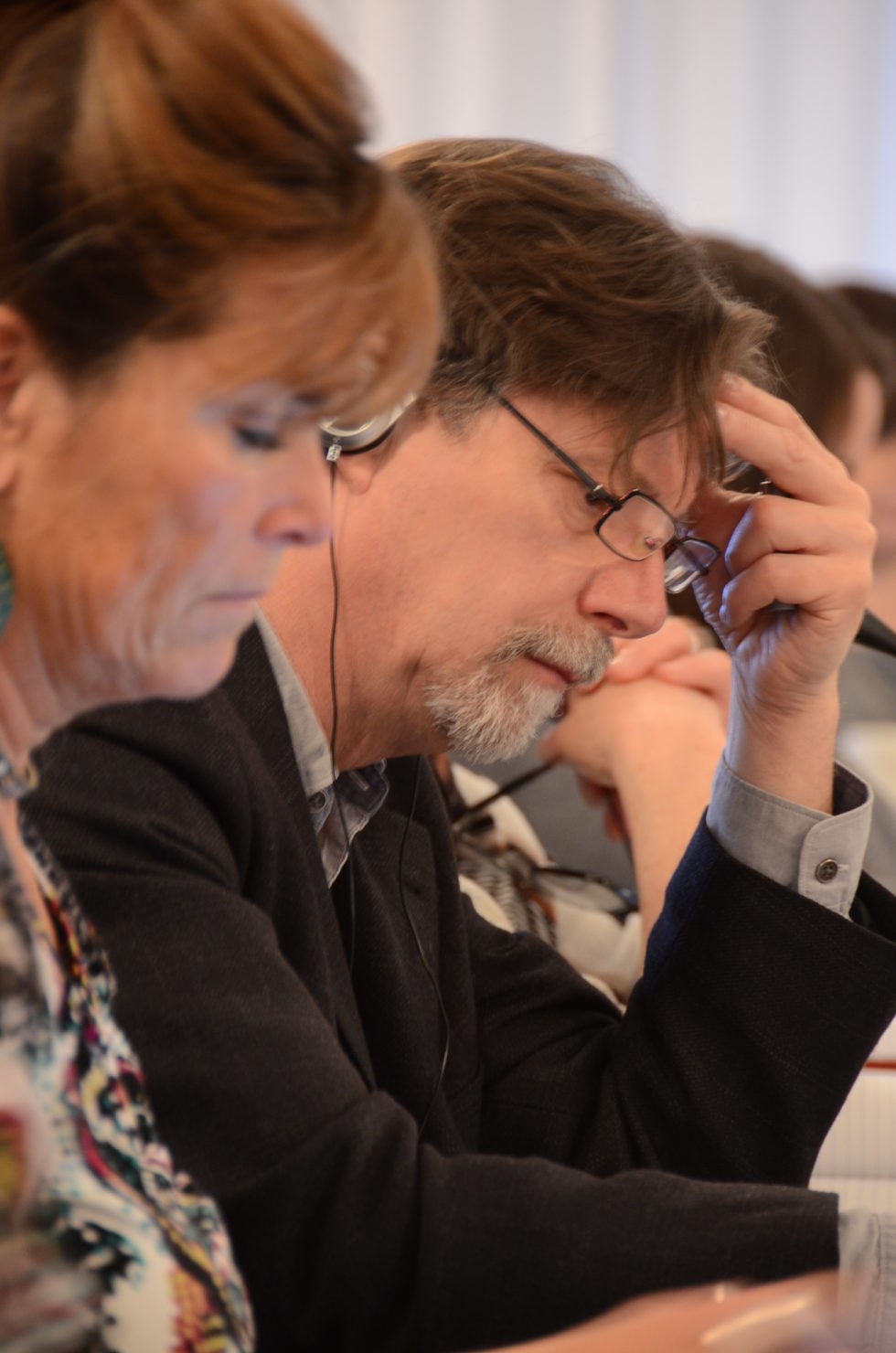
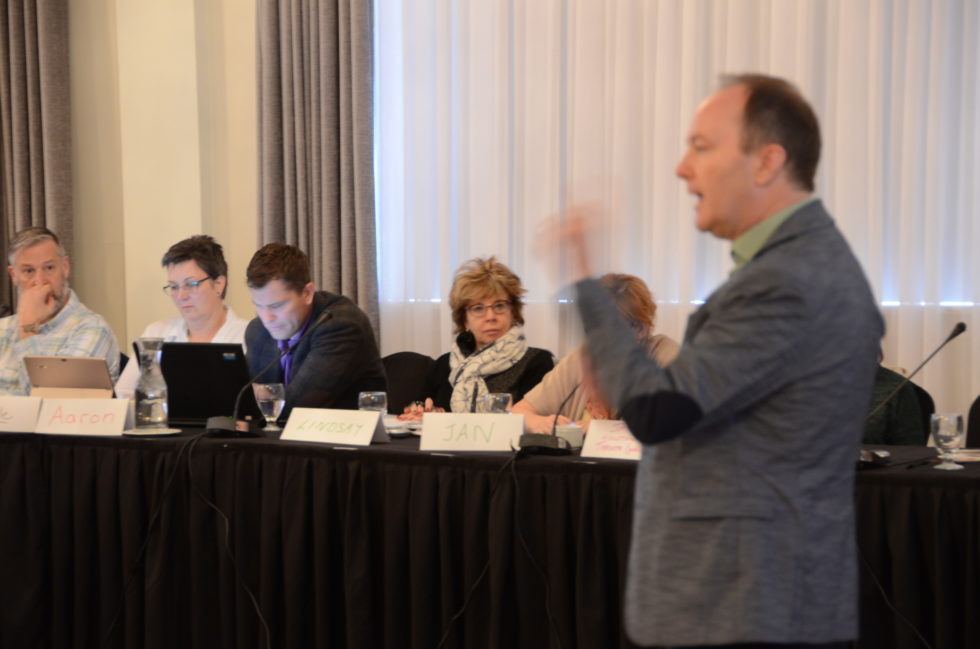
Patrick Smith delivers a presentation on the “Potential of Federated Organizations”
Posted on: November 23rd, 2016 by Waterloo Region Crime Prevention Council
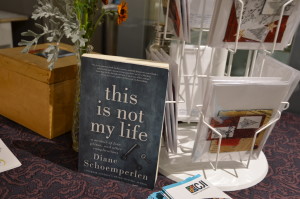 Inevitably, the Turn the Page book club discussions turned to the support provided to people in prison while they serve their sentences and the programs and support available during parole or upon release. Many people in attendance admitted to not knowing the reality facing people on the ‘inside’.
Inevitably, the Turn the Page book club discussions turned to the support provided to people in prison while they serve their sentences and the programs and support available during parole or upon release. Many people in attendance admitted to not knowing the reality facing people on the ‘inside’.
The past 5-7 years have seen a cut in federal funding to several prison support programs (inside and outside prisons) that have shown to be effective in reducing recidivism, building skills for reintegration and providing support to some of the most stigmatized prisoners, people who have sexually offended.
You might be interested in supporting these programs with a donation to keep them going. Or, as someone suggested at the book club event, you might want to write a letter to your Member of Parliament advocating for increased funding to support these valuable programs.
- Lifeline provides support and transitional housing to men who have served a life sentence as they prepare for reintegration into our communities. Funding for this program was cut in 2012/2013. Some Lifeline programs are still offered through various St. Leonard Society organizations.
- Circles of Support and Accountability is a Canadian-made restorative justice program for men and women who have committed serious sexual offences. CoSA allows the community to play a direct role in the restoration, reintegration, and risk management of people who are often seen with only fear and anger. COSA experienced the same severe federal funding cuts as Lifeline in 2014 and has spent a great deal of time figuring out how to support a nation-wide program of COSA chapters. They have even some sample letters already prepared which you could use to advocate for reinstated funding for COSA.
- Prison farms have been a part of 6 federal prison institutions since the establishment of correctional facilities in Canada. They were defunded and closed by the federal government between 2009 – 2013. Prison farms provided beneficial employability and training opportunities, time management and responsibility skills, animal therapy, productive labour and physical exercise, access to nature, individual and team building work, and training in farm management and operation. There are many advocating for the return of prison farms as a prosocial training opportunity for inmates. Project Soil published an excellent case study of the prison farms at Frontenac and Pittsburgh Institutions, both Correctional Services of Canada facilities in Ontario.
- Here is a 59 minute film about prison farms in Canada – Til the Cows Come Home.
If you’re super keen, someone suggested having a letter writing party – invite your friends, invite your neighbours!
There are certainly more prisoner support programs that are proven to work, but these three were discussion specifically at the event.
Also check out the call to action for opportunities to be involved in systems and societal changes.
Posted on: November 23rd, 2016 by Waterloo Region Crime Prevention Council
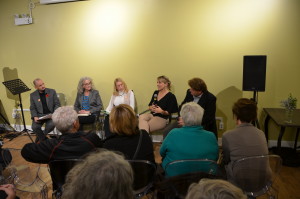 The Turn the Page book club stimulated a great deal of discussion about the stigma. Society, in general, has a negative stigma against people that have been in prison and often their family member and children too.
The Turn the Page book club stimulated a great deal of discussion about the stigma. Society, in general, has a negative stigma against people that have been in prison and often their family member and children too.
People began to ask questions: How do we change this attitude in society and within ourselves? Given that we have a federal prison for women right here in Waterloo Region, how can we help within our own community? How can we get involved?
We’ve pulled together a range of potential ‘calls to action’ that help to humanize people in prison & reduce the stigma of loved ones. As Diane and the panelists reminded us, people in prison will leave prison when their sentences end and return to our communities. Reintegration to life on the ‘outside’ doesn’t happen by magic.
There are countless ways to be involved, likely more than we have to share, but here’s a start.
To start.. Read the Book! If you didn’t get a chance the first time around, it’s still available to borrow at KPL, WPL and Cambridge or get it for sale at Wordsworth Books in Waterloo. We developed a reading guide that might be helpful for checking some of your assumptions and thinking broadly about this issues Diane challenges us with.
If you have a book club, get them to read the book too! We’ve even created a handy Reading Guide to accompany the book.
One of the best ways to start in this area is to work directly with or support the organizations that work with inmates and their families.
- STRIDE is a program of Community Justice Initiatives. STRIDE helps women in prison build informal networks of support that assist them as they reintegrate back to the community. They also prepare the community to receive them safely and supportively. CJI has several other programs that offer support to offenders.
- John Howard Society Waterloo-Wellington offers diverse prevention, diversion, intervention and educational services for children, youth and adults who are in conflict with the law or at risk of getting there.
- Elizabeth Fry Society for Kitchener Waterloo provides gender-specific services, support and advocacy for women within the community, involved in a judicial process or who are serving sentences at Grand Valley Institution for Women, a federal prison for women located in Kitchener.
- Volunteer at Grand Valley Institution – The Correctional Service of Canada has a volunteer program that works directly with recreational activities, classroom and workshop instruction, and cultural or chaplaincy activities and supports families of offenders or helping released offenders re-adjust to life.
These are all very different volunteer opportunities and if you are very interested, best to do the research and find the best fit for you and your interests. You might discover that you prefer a community based approach rather than a formal institutional setting.
Check out the ‘calls to action’ related to advocating for programs that work and creating system change.
Posted on: November 23rd, 2016 by Waterloo Region Crime Prevention Council
 At first glance, Diane Schoemperlen’s memoir “This Is Not My Life: A Memoir of Love, Prison, and Other Complications” seems straight forward, in its own way, the stuff of TV shows and movies…. An author meets a fellow volunteer at a Kingston soup kitchen whom she knows has been is in prison, they become friends, they eventually develop an intimate partner relationship, they try to navigate the world inside prison and outside prison, they try to manage life together on the outside, the author leaves the relationship that has become abusive and spends the next six years healing and putting her life back together.
At first glance, Diane Schoemperlen’s memoir “This Is Not My Life: A Memoir of Love, Prison, and Other Complications” seems straight forward, in its own way, the stuff of TV shows and movies…. An author meets a fellow volunteer at a Kingston soup kitchen whom she knows has been is in prison, they become friends, they eventually develop an intimate partner relationship, they try to navigate the world inside prison and outside prison, they try to manage life together on the outside, the author leaves the relationship that has become abusive and spends the next six years healing and putting her life back together.
After spending an evening with Diane at the Turn the Page Book Club hosted by the Friends of Crime Prevention we have a deeper understanding of the complexity of this story. The story of their relationship covers tough issues tied to root causes of crime, such as family violence, sexual violence, and problematic substance use. Schoemperlen is unflinching in assessing her own motivations for staying in the relationship, as she comes to know the shadow and stigma that institutionalization casts over inmates and their loved ones.
Maybe slightly unorthodox for your average book club, Friends also brought together a community panel of Jennifer Hutton (Women’s Crisis Services of Waterloo Region), Chris Cowie (Community Justice Initiatives) and Shannon Moroney, author of Through the Glass to discuss the themes of the book in more depth and draw some direct applications to our community.
From the discussions between Diane & the panelist and the question/answer period with the community readers, we covered more content and topics than your average university course! Discussion ranged from childhood abuse/trauma to incarceration rates, from restorative justice to the lack of helpful prison programs, from reintegration challenges for released inmates to stigma faced by loved ones and family members of inmates, from abusive relationships to support networks for families of inmates, from the prison industrial complex to… well, I think you get the idea. Diane’s is a personal story that shines a light, not only on her own experience, but deftly directs a laser beam at the prison system in Canada. Diane skillfully tells a political story through her own story – a story that concerns us all.
Over the course of the discussion, people began to ask questions: What we can do to change a system that is clearly not working? Given that we have a federal prison for women right here in Waterloo Region, how can we help within our own community? How can we get involved?
We’ve pulled together a range of potential ‘calls to action’ and avenues for participating in creating change. Clicking on the links here will get you started.
If you decide to take some action, we would love to hear about it! Get in touch with Juanita Metzger to share your story.
Posted on: November 3rd, 2015 by Waterloo Region Crime Prevention Council
 As we put the finishing touches on the Friends of Crime Prevention Human Library event, we wanted to share some of the human ‘books’ and ‘library subjects’ you will find that day! Such a rich diversity of experience, knowledge and community change! You will have to use your time wisely to visit even three of these fantastic books.
As we put the finishing touches on the Friends of Crime Prevention Human Library event, we wanted to share some of the human ‘books’ and ‘library subjects’ you will find that day! Such a rich diversity of experience, knowledge and community change! You will have to use your time wisely to visit even three of these fantastic books.
On poverty/inequality:
On problematic substance use:
On neighbourhood environments:
On family environments:
On mental health:
On housing:
On youth support & engagement:
What a collection!
Friday November 13, 2015
School of Social Work, Lyle Hallman Building
120 Duke Street West, Kitchener
(paid parking available at Kitchener City Hall. Entrance on Young Street, just across the street from the School of Social Work)
9:00 – 11:30 a.m.
Join us at 8:30 a.m. for our famous coffee social!
Posted on: October 31st, 2015 by Waterloo Region Crime Prevention Council
If you had the chance…. What questions would you ask from long time community leaders and pioneers in the field of crime prevention in Waterloo Region?
Don’t miss your opportunity with the Friends of Crime Prevention Root Causes of Crime Human Library!
Friday November 13, 2015
School of Social Work, Lyle Hallman Building
120 Duke Street West, Kitchener
9:00 – 11:30 a.m.
Join us at 8:30 a.m. for our famous coffee social!
Preview the list of “subjects” you can check out at the event – what a collection!
This year, 2015, marks the 20th Anniversary of the Waterloo Region Crime Prevention and 20 years of prevention-based thinking about crime prevention through social development.
At our Friends of Crime Prevention event on Friday November 13th, we take a look back at how we and our community have evolved, adapted and lead the way for change on the root causes of crime as a community in Waterloo Region.
In 1996, WRCPC developed The Root Causes of Crime statement as a way to promote a better understanding of the root causes, as complex and interrelated as they are. Earlier this year, WRCPC consulted with our community to guide the development of our 2015 – 2018 strategic plan. We learned that people generally understand the root causes of crime and victimization – which is amazing! The conditions we knew to contribute to crime 20 years ago were identified again today as priority root cause areas in need of focused attention. These include:
- poverty/inequality
- problematic substance use
- neighbourhood environments
- family environments
- mental health
- lack of housing
- lack of supports & engagement for youth
Join your fellow Friends of Crime Prevention for this chance to ‘check out’ and ask questions of our ‘human library books’. Find out what is happening in our community to address these root cause issues, what organizations are involved in the work, what the issues and solutions might be and discover potential opportunities for Friends to get involved!
For more information, contact:
Juanita Metzger 519.575.4400 ext. 3548

























 As we put the finishing touches on the
As we put the finishing touches on the